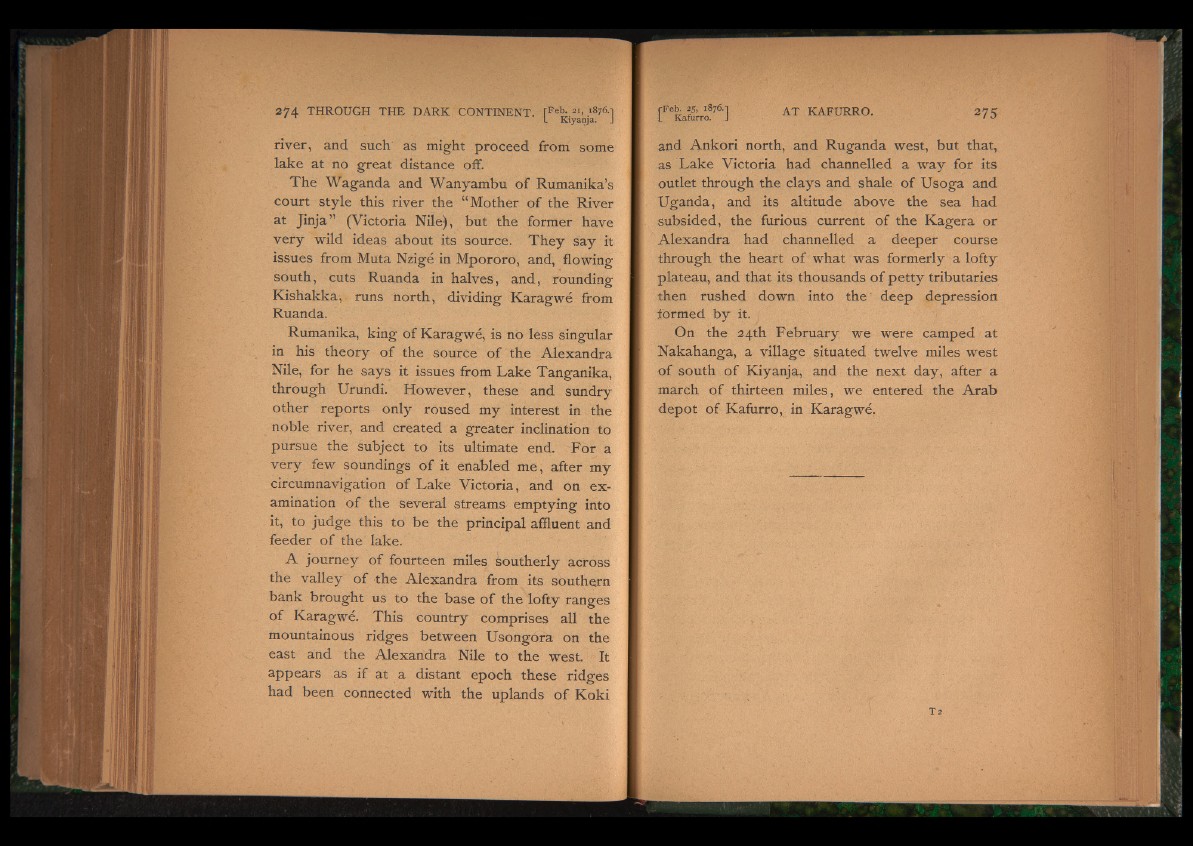
river, and such as might proceed from some
lake at no great distance off.
The Waganda and Wanyambu o f Rumanika’s
court style this river the “Mother o f the River
at Jinja” (Victoria Nile), but the former have
v e ry wild ideas about its source. T h e y sa y it
issues from Muta Nzige in Mpororo, and, flowing
south, cuts Ruanda in halves, and, rounding
Kishakka, runs north, dividing Karagwe from
Ruanda.
Rumanika, king o f Karagwe, is no less singular
in his theory o f the source o f the Alexandra
Nile, for he says it issues from Lake Tanganika,
through Urundi. However, these and sundry
other reports only roused my interest in the
noble river, and created a greater inclination to
pursue the subject to its ultimate end. F o r a
v e ry few soundings o f it enabled me, after my
circumnavigation o f Lake Victoria, and on e x amination
o f the several streams emptying into
it, to judge this to be the principal affluent and
feeder o f the lake.
A journey o f fourteen miles southerly across
the v a lle y o f the Alexandra from its southern
bank brought us to the base o f the lofty ranges
o f Karagwe. This country comprises all the
mountainous ridges between Usongora on the
east and the Alexandra Nile to the west. It
appears as i f at a distant epoch these ridges
had been connected with the uplands o f K o k i
and Ankori north, and Ruganda west, but that,
as Lake Victoria had channelled a w a y for its
outlet through the clays and shale of Usoga and
Uganda, and its altitude above the sea had
subsided, the furious current o f the Kagera or
Alexandra had channelled a deeper course
through the heart o f what was formerly a lo fty
plateau, and that its thousands o f p e tty tributaries
then rushed down into the' deep depression
formed b y it.
On the 24th February we were camped at
Nakahatiga, a village situated twelve miles west
o f south o f Kiyanja, and the next day, after a
march o f thirteen miles, we entered the Arab
depot o f Kafurro, in Karagwe.